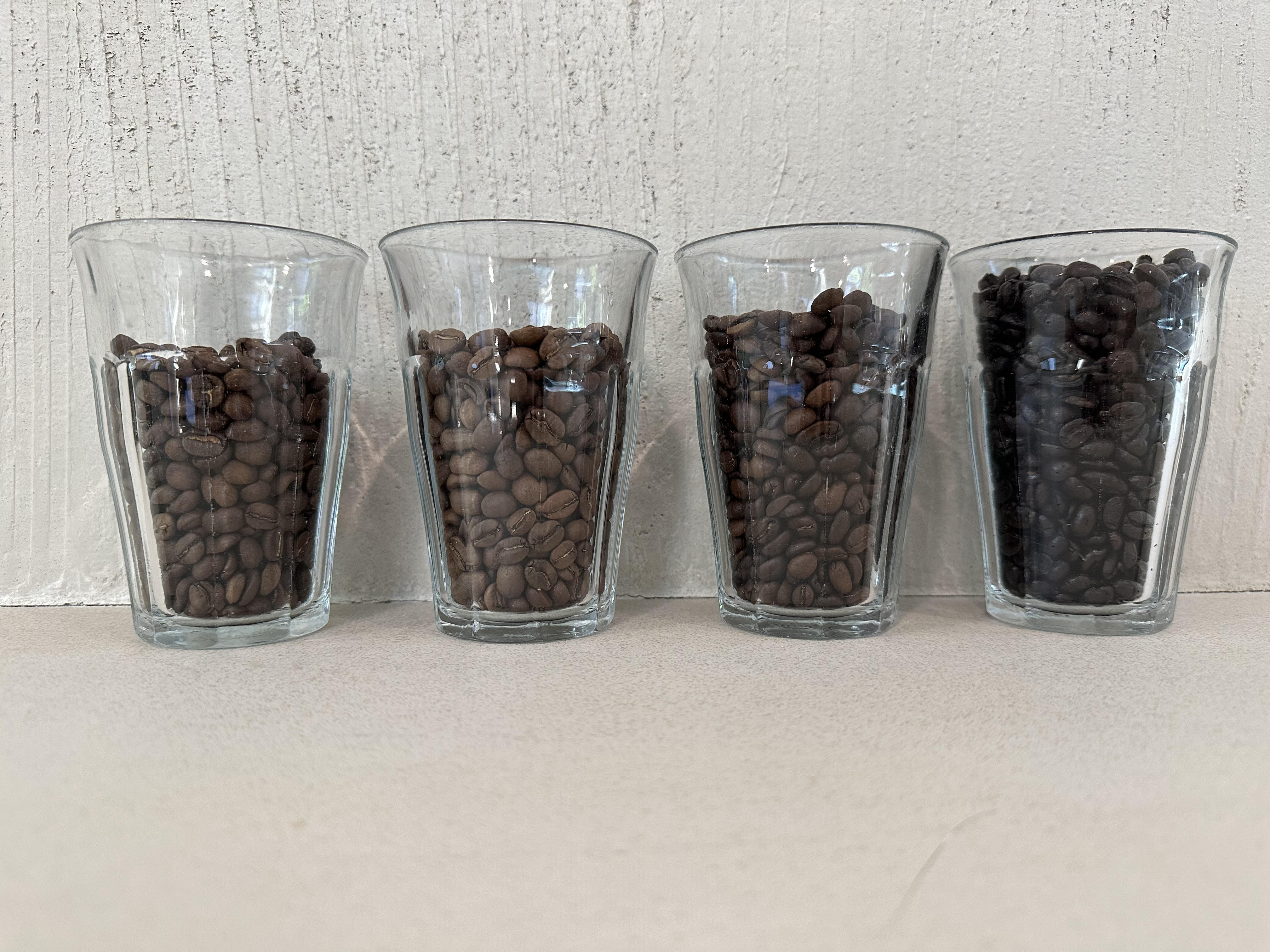I am frequently asked whether dark roast coffee has more caffeine than lighter roasts. My answer is always, “yes and no, It depends on how you measure your beans before you brew."
This can be a confusing response for anyone to hear, and the conversation often needs to circle back to the science of coffee roasting.
As the coffee is roasted the volume is increasing and the weight is decreasing. WTF, you wonder? As the coffee gets darker, it becomes less dense due to moisture loss, and it swells up, causing the volume to increase. This is why a 1-pound bag of dark roast looks much larger than a 1-pound bag of light roast.
For example, this is 70g of coffee across 4 different roasts, light to dark:

The myth: dark roast coffee has a higher caffeine level than lighter roast
It actually has nothing to do with the shade, and everything to do with the remaining weight.
I always explain that caffeine content is not determined by the roast level of the beans, but rather remains constant throughout the roasting process. So, 100 green coffee beans will have the same caffeine content as light roast, and dark roast. However, the volume and weight of those 100 beans will vary at each stage.
The weight of coffee in your cup is what determines the caffeine level, not the roast
This is where the "how you measure your beans before you brew" comment comes into play. For instance, using a dark roast coffee as an example, if you measure by using a scoop (before you grind), you would scoop less coffee because the volume of each bean has increased, so less fits in the scoop. But if you weigh the coffee on a scale, you would need more beans to achieve the same weight. This is because they are becoming less heavy as they get darker.
Other factors that affect caffeine content in coffee:
It's important to note that other factors, such as brewing time, water temperature, and brewing method, can also affect the caffeine content of your coffee. For example, espresso typically contains more caffeine than drip coffee due to the high pressure and temperature used during brewing, extracting more caffeine from the beans. However, because you consume a smaller volume, the overall caffeine intake may balance out.

What's the right weight of coffee I should be using?
Well, that depends, too. We've created these Brew Guides to give the exact weights and ratios we recommend using so you can get the most out of your coffee and enjoy it the way it's intended to be tasted.
We always recommend using a scale to weigh all your doses as it is more accurate and consistent. There are so many factors influencing caffeine content, and ultimately, the goal is to make sure you are getting the desired effect from your drink.
If it makes you feel good and gives you a nice pick-me-up, then you are on the right track. If it gives you the jitters, we suggest blending a little decaf in.
Learn more about light roast vs dark roast coffee here.
